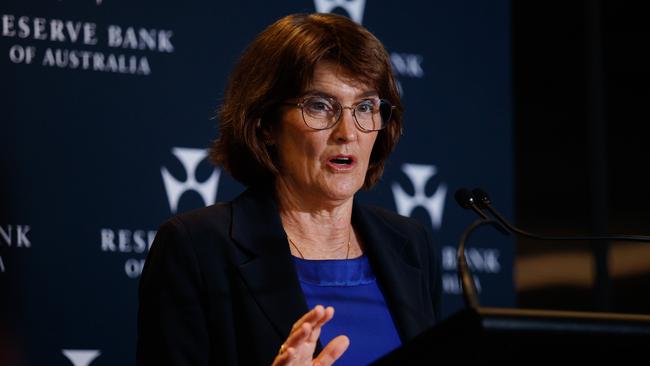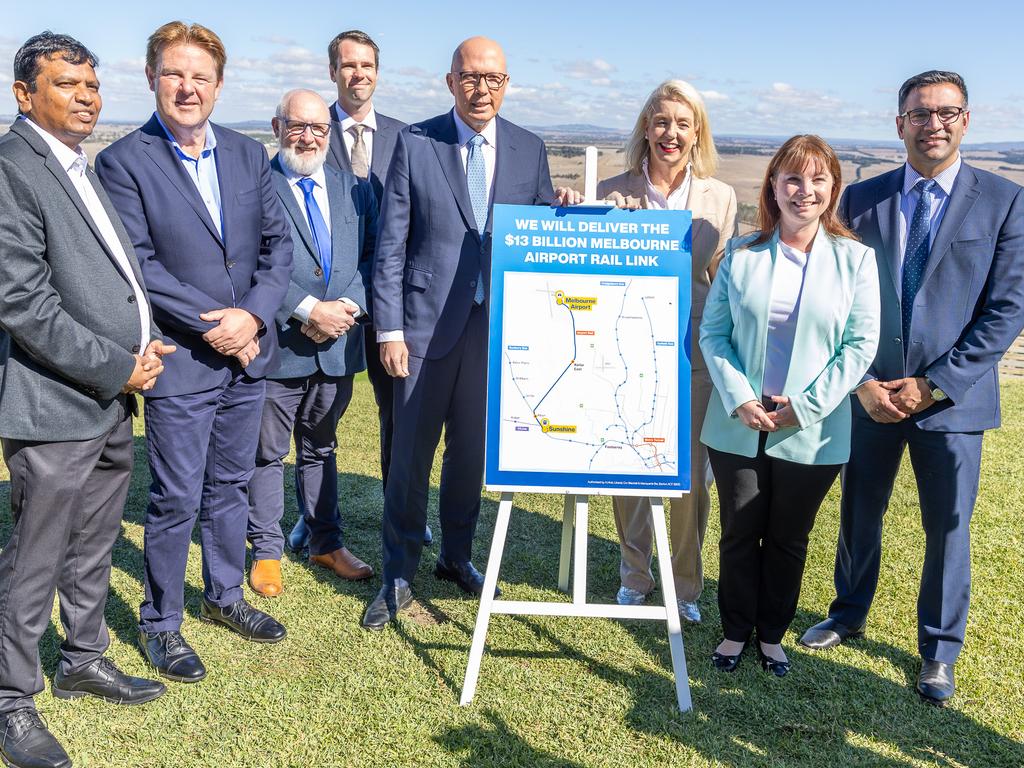
Anthony Albanese has set up a second and equally potent cost-of-living test for Peter Dutton.
Having dared him to oppose Labor’s future tax cuts, as meagre as they are, the Labor leader is now daring him to oppose wage rises for low-paid workers.
This is now dangerous political territory for the Liberal leader with the election 4½ weeks away.
It’s also potentially dangerous territory for the economy and an unpredictable inflation outlook.
Labor’s move to seek further national wage rises was predictable. The timing was equally foreseeable.
The Prime Minister and Jim Chalmers were always going to need a counter-narrative to the RBA’s decision to keep interest rates on hold this week, as the nation was reminded again just how much their living standards have collapsed.
Albanese’s antidote remains unchanged. It sees government’s role as treating symptoms of inflation rather than the cause.
Presumably Dutton and Angus Taylor will be prepared for the Labor scare campaign that not only does the Coalition oppose tax cuts, it opposes wage rises as well.
What was perhaps unexpected was the insistence that wages rise significantly above inflation, with Albanese having previously argued only that the commission should ensure award workers simply didn’t go backwards.
“We will recommend the Fair Work Commission should go further and provide an economically sustainable real wage increase to Australia’s award workers,” its submission says.
“The submission also makes the point that an increase in minimum and award wages should be consistent with inflation returning sustainably to the RBA’s target band this year, while providing further relief to lower income workers.”
The notion of an “economically sustainable” rise is vague enough in the current environment to be meaningless, but it does send a sharp political message that taps into what Labor believes is a dependency psychology of the electorate.
Disturbingly though, it also signals a break between the government’s assessment of inflation and the economy and that of the central bank.
Labor assumes it has beaten inflation.
The RBA makes no claim yet to this.
On the contrary, it continues to warn of the risks of such a view.
RBA boss Michele Bullock cited wage pressures as a concern on Tuesday after revealing there had been no consideration by the newly installed board to cut rates this time. “We are still alert to the possibility that it might still be a little bit tight and that might put wages under upward pressure, and hence inflation,” she said.
As Ronald Reagan was reported as apparently once saying of inflation: it is as “violent as a mugger, as frightening as an armed robber, and as deadly as a hitman.”
He should have added that until you make sure it’s dead or arrested, it’s likely to come back for another go at you.
This is now the challenge that will face whoever wins the next election and its why Labor’s bullish claims about having effectively got it under control should be concerning.
The central bank clearly has less confidence in this suggestion.
The problem the bank and policymakers face is that conditions could go either way – a resurgence of inflation or a tanking of the economy – or both.
The key word in Bullock’s short statement on why the Reserve held rates where they are is “uncertainty”.
It has limited confidence about where the economy is headed in the short term, considering the global shockwaves.
The RBA gave a free pass to the government in February to start spending like sailors on shore leave after delivering a single rate cut.
Labor has promised more than $60bn in new spending measures since then.
This is a posture that the RBA must have known that the government would assume but is now inconsistent with its uncertainty about where the economy is headed.
Labor’s assessment that it can now call for wage rises above inflation continues a theme that gives less regard for mortgage holders and rates staying higher for longer.
Labor has used the FWC submission process as part of a cost-of-living policy arsenal since it was elected.
This will be its fourth submission.
It matters little that Labor has consistently engaged in a misleading narrative that it was indeed responsible for delivering wage rises rather than the Fair Work Commission.
This important but peripheral point will be lost in the rough and tumble of the debate.
But the Opposition Leader’s response to this now may shape the rest of the campaign.
--






